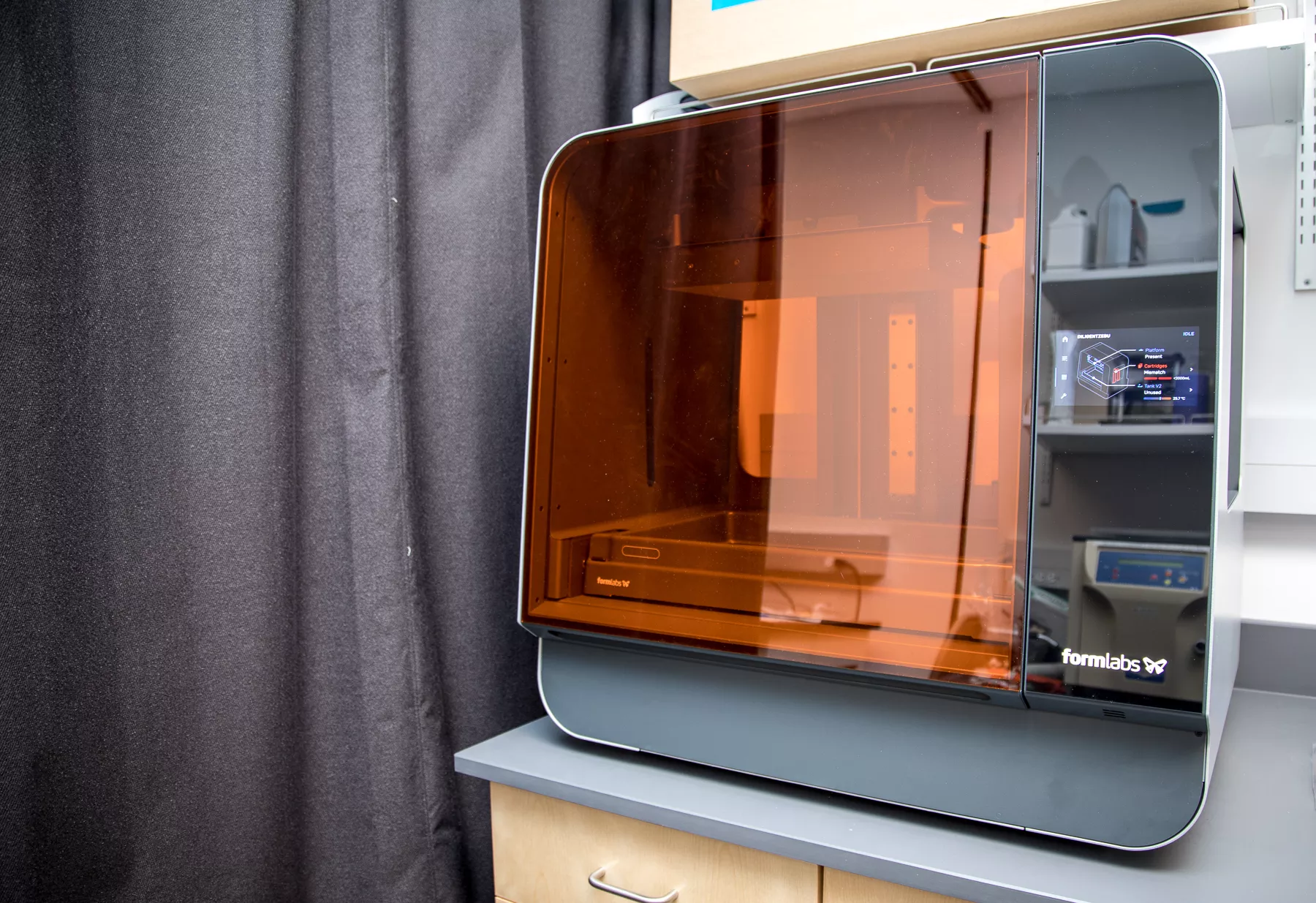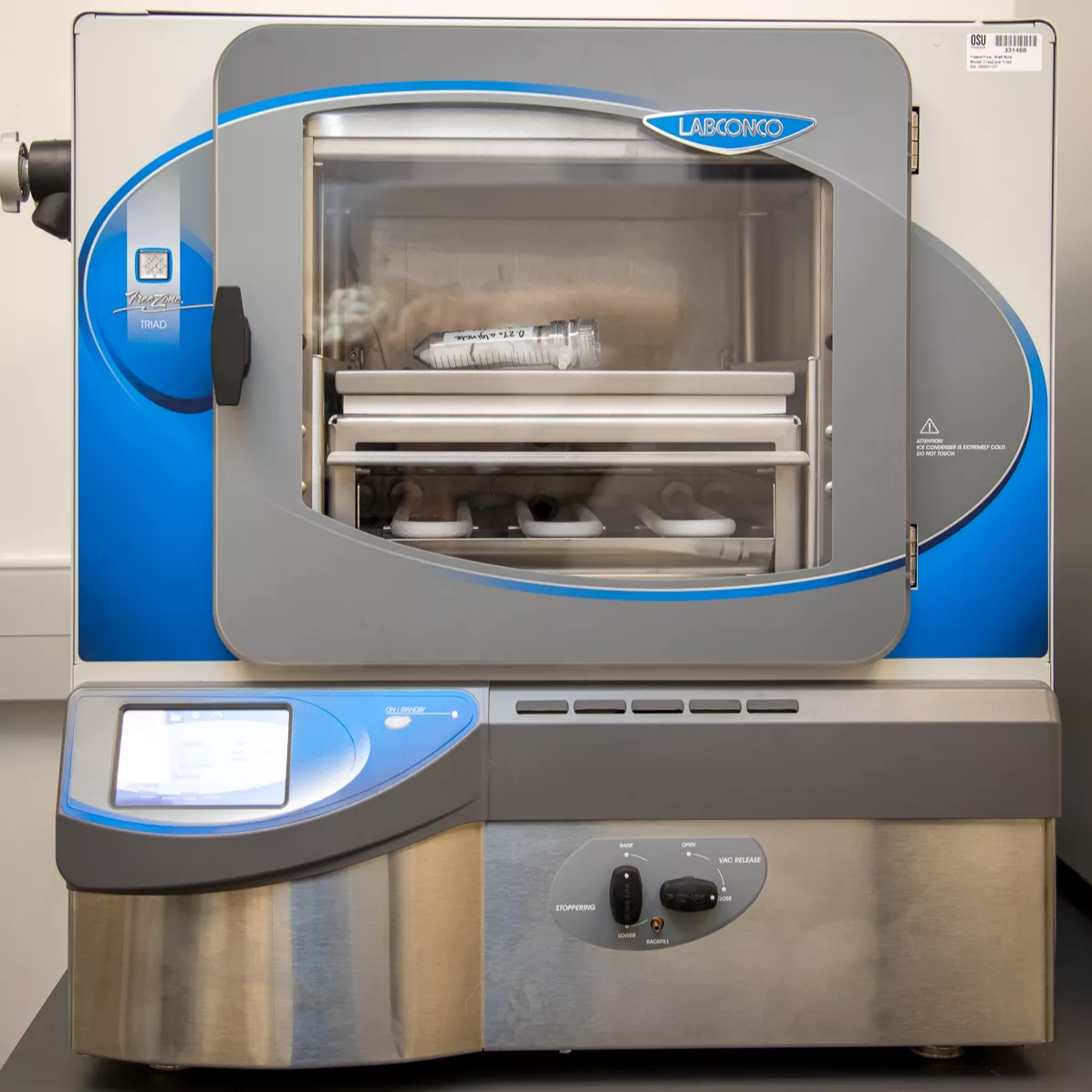
Form 3BL 3D printer
The Form 3L is a large format printer, enabling the printing of large devices or multiple copies of a single device in a single build, using low-force stereolithography. Contact: Elain Fu.

CADworks3D M50
The CADworks3D M50 is a stereolithography printer designed for printing microfluidic devices with exceptionally high spatial resolution. Contact: Elain Fu.

Injection molding machine
The APSX-PIM is an automatic desktop injection molding machine designed with control features typical of larger machines, but with a smaller sample volume better suited for a university environment. Coupled with 3D printed molds, injection molding enables experimental testing of many devices and allows for rapid iteration of the device design/redesign cycle. Contact: Skip Rochefort.

Bioprinter
The Cellink Bio X 3D bioprinter enables printing of 3D structures containing biomaterials, cells, and other engineering materials, such as plastics. The printer is equipped with two lasers (365 nm and 405 nm), providing flexibility for the crosslinking of biomaterial-based bioinks. Contact: Kaitlin Fogg.

Nanoimprint Lithography
Nanoimprint lithography is a method of fabricating nanometer-scale patterns, which can be used for research on microfluidic devices, biosensors, MEMS, nanophotonics, and nanoelectronics. It enables a simple lithography process that is low cost, high throughput, and high resolution. Contact: Larry Cheng.

Parylene deposition system
Parylene is a flexible polymer coating layer that has multiple critical uses for biomedical devices, both for encapsulation and as a flexible, stretchable substrate. It also can be used as a substrate for directed surface functionalization. Contact: Matt Johnston.

PDMS Spin Coater & PDMS Mixer
PDMS is a clear silicone rubber material commonly used for replication molding. Equipment includes a planetary mixer and a dedicated spin-coater capable of spreading thin (<100 µm) silicone layers. Contact: Matt Johnston.

Shelf-style Freeze dryer
Freeze drying is used to stabilize biomolecules for long-term storage. The freeze dryer will support development of devices containing biomolecules, including diagnostic devices with immobilized enzymes (and other proteins) for detecting a specific analyte in a biological sample. Contact: Adam Higgins.